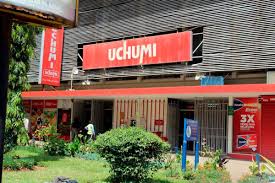Uchumi Supermarket PLC has recorded a rare legal victory after the High Court awarded it KSh26.7 million in special damages over a commercial dispute with former franchise partner, Aljazeera City Market. The case, which revolved around a breached franchise agreement, marks a notable win for the troubled retail chain as it struggles to regain its financial footing.
The court found that Aljazeera, which had entered an eight-year franchise agreement with Uchumi in October 2018, had failed to meet several key contractual obligations. These included the full payment of a KSh12 million goodwill fee, remittance of KSh1,080,000 in royalties, and rent amounting to KSh18,502,500. In addition, the court ruled that Aljazeera was responsible for removing business assets worth KSh1,092,621 when the partnership collapsed.
Justice Josephine Mong’are, who presided over the matter, declared that Aljazeera breached the terms of the agreement and failed to substantiate any of its counterclaims. “The Plaintiff (Uchumi) demonstrated, through letters, invoices, and a schedule of assets, that goodwill, royalties, and rent remain unpaid, and that the Defendant removed assets worth KSh1,092,621. The total claim is therefore proved,” Justice Mong’are ruled.
In its defence, Aljazeera had accused Uchumi of misrepresentation, unfair rent increases, and deliberate sabotage of the business. The franchisee had even sought a refund of the goodwill fee paid. However, the court dismissed these claims, noting that Aljazeera did not produce any witnesses or documents to support its allegations. On the other hand, Uchumi submitted extensive evidence, including a detailed inventory of the assets in question.
The court’s decision reinforces Uchumi’s ongoing attempt to stabilise its operations through franchising, a strategy adopted as a survival path after years of financial trouble. Rather than operating physical outlets themselves, Uchumi licenses its brand and business model to independent investors, aiming to generate revenue while cutting operational costs. This move has helped the company maintain a presence in Kenya’s competitive retail sector and avoid delisting from the Nairobi Securities Exchange (NSE), even as its stock continues to trade as a penny stock.
In a related development, Uchumi has also revealed plans to reposition one of its last remaining assets, Lang’ata Hyper, into a shopping mall. During a recent creditors meeting, the retailer disclosed that the mall transformation plan is currently on hold due to an ongoing legal dispute with a tenant identified as Hotspot. Despite the delay, Lang’ata Hyper already has 10 active tenants, and Uchumi remains optimistic about its future prospects. Along with the Unicity branch near Kenyatta University, Lang’ata Hyper is one of the last two functioning Uchumi outlets.
Uchumi’s struggles can be traced back to a 2006 receivership and worsened after 2015 following corporate governance failures, increased debts, and tough competition from fast-rising supermarket chains such as Naivas, Carrefour, and Quickmart. The company’s efforts to restructure under a Company Voluntary Arrangement (CVA) began in 2019 under the supervision of administrator Owen Koimburi. However, the CVA was only approved after a second vote by creditors in 2020.
Even though the mall conversion could potentially offer a new stream of revenue, Uchumi’s broader revival remains a challenging task. The retailer continues to face multiple hurdles, including pending litigations, a shrinking branch network, and a brand that has lost its dominance in Kenya’s retail space. Its shares at the NSE have little investor interest and trade at minimal value.
Still, the court win against Aljazeera City Market gives Uchumi a much-needed financial boost and signals that the company is willing to enforce its agreements and defend its commercial interests. As the company continues to look for new ways to generate income and settle debts, stakeholders will be watching closely to see if the once-iconic brand can reclaim its space in the country’s fast-evolving retail industry.
